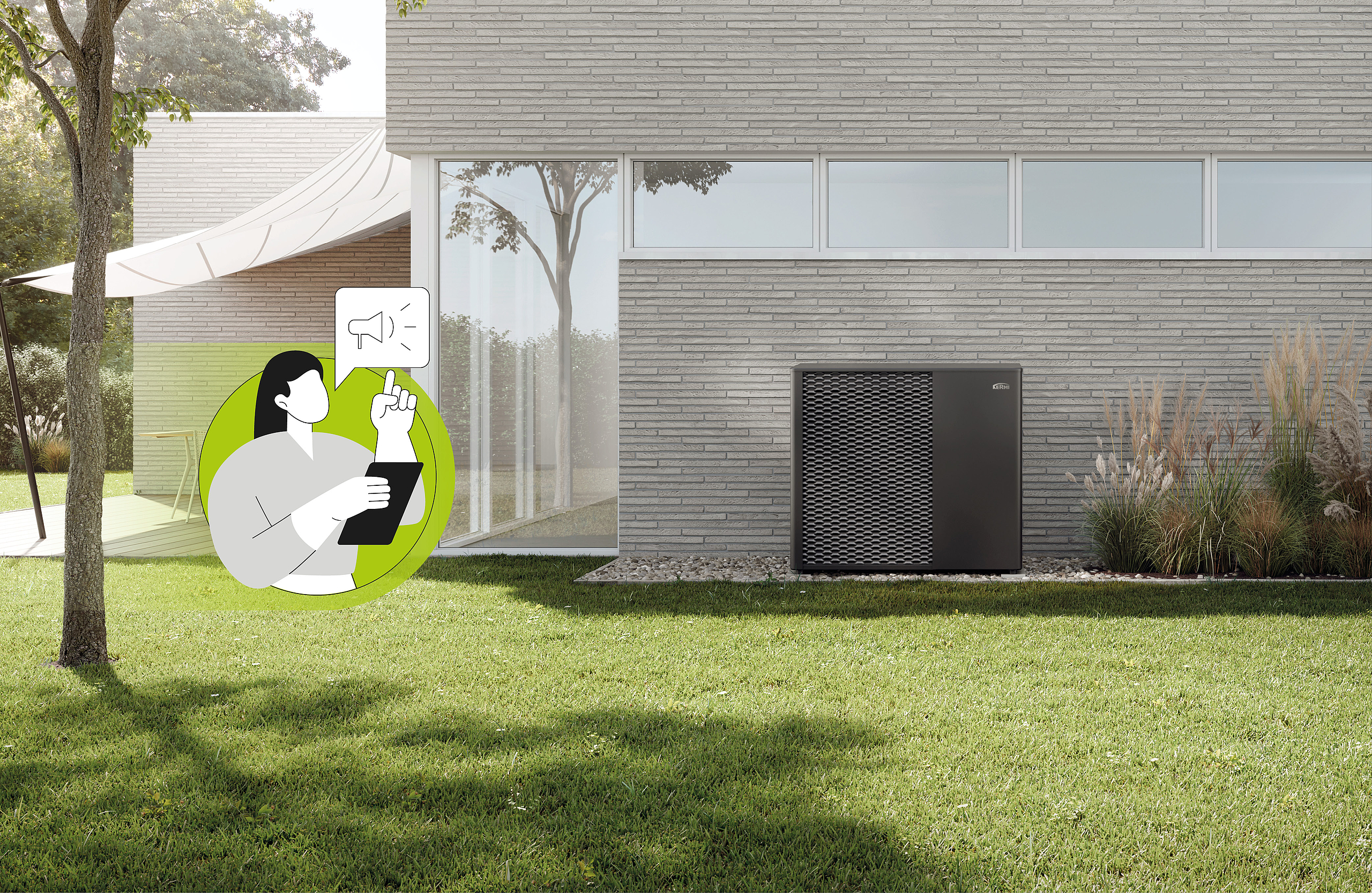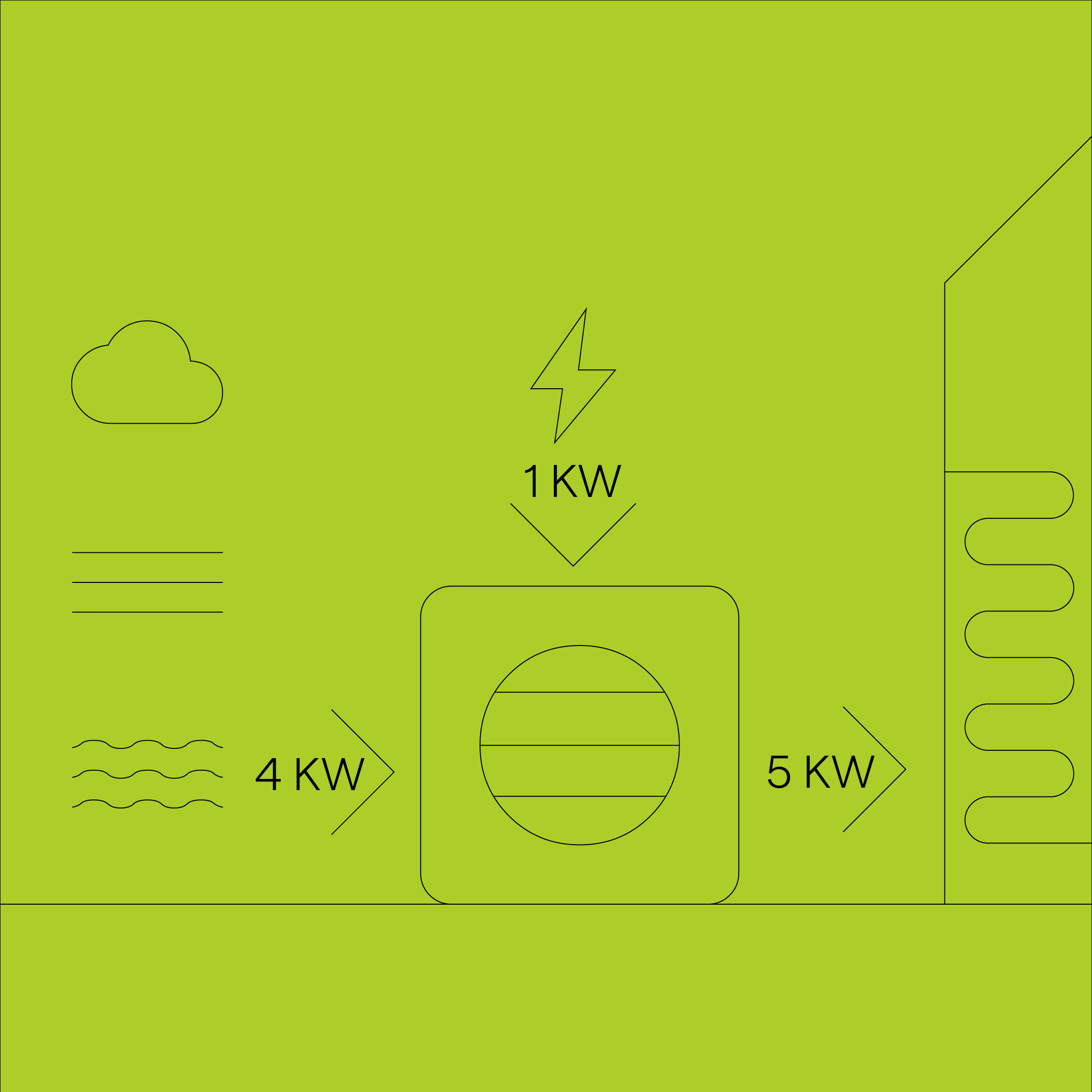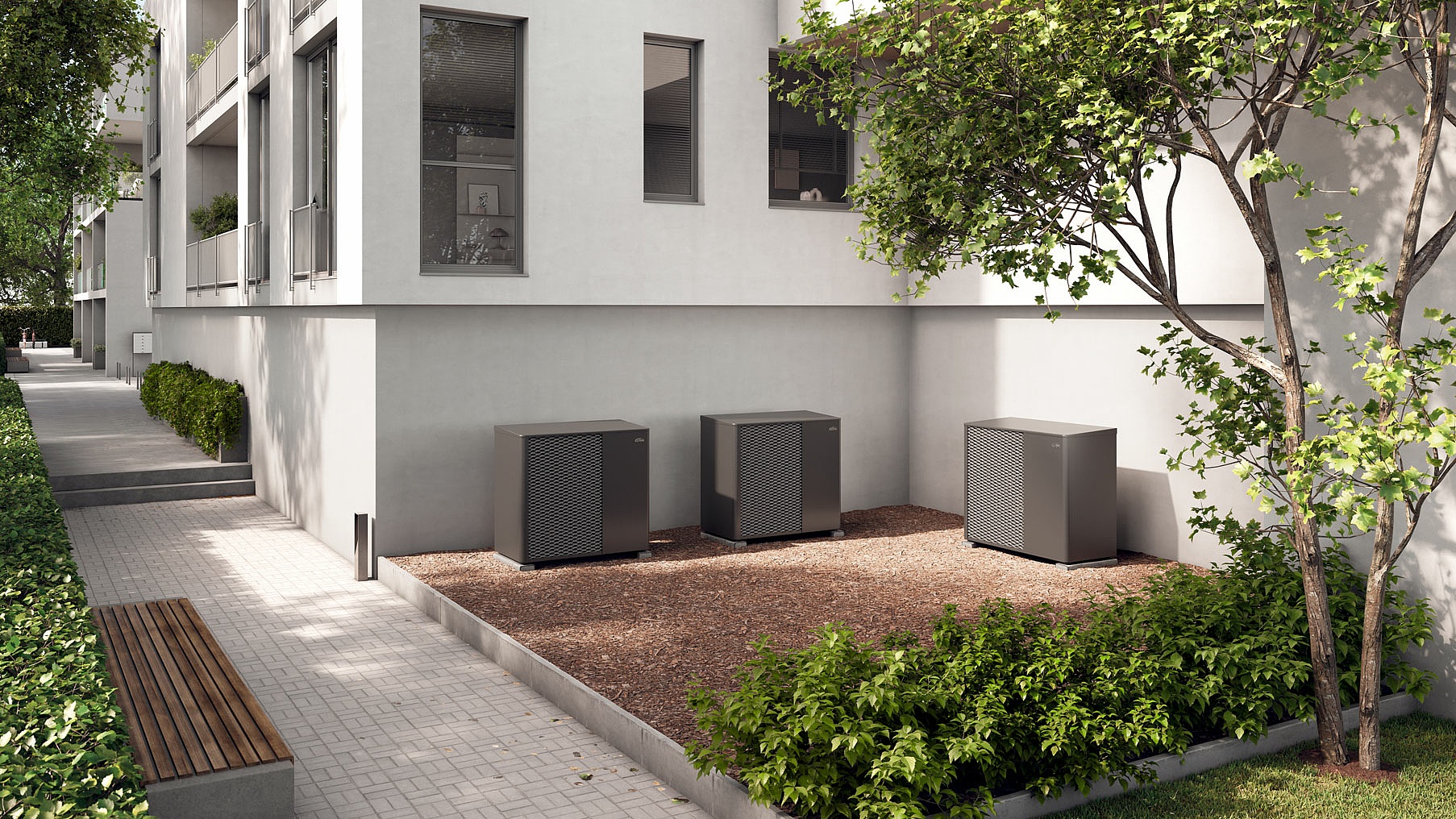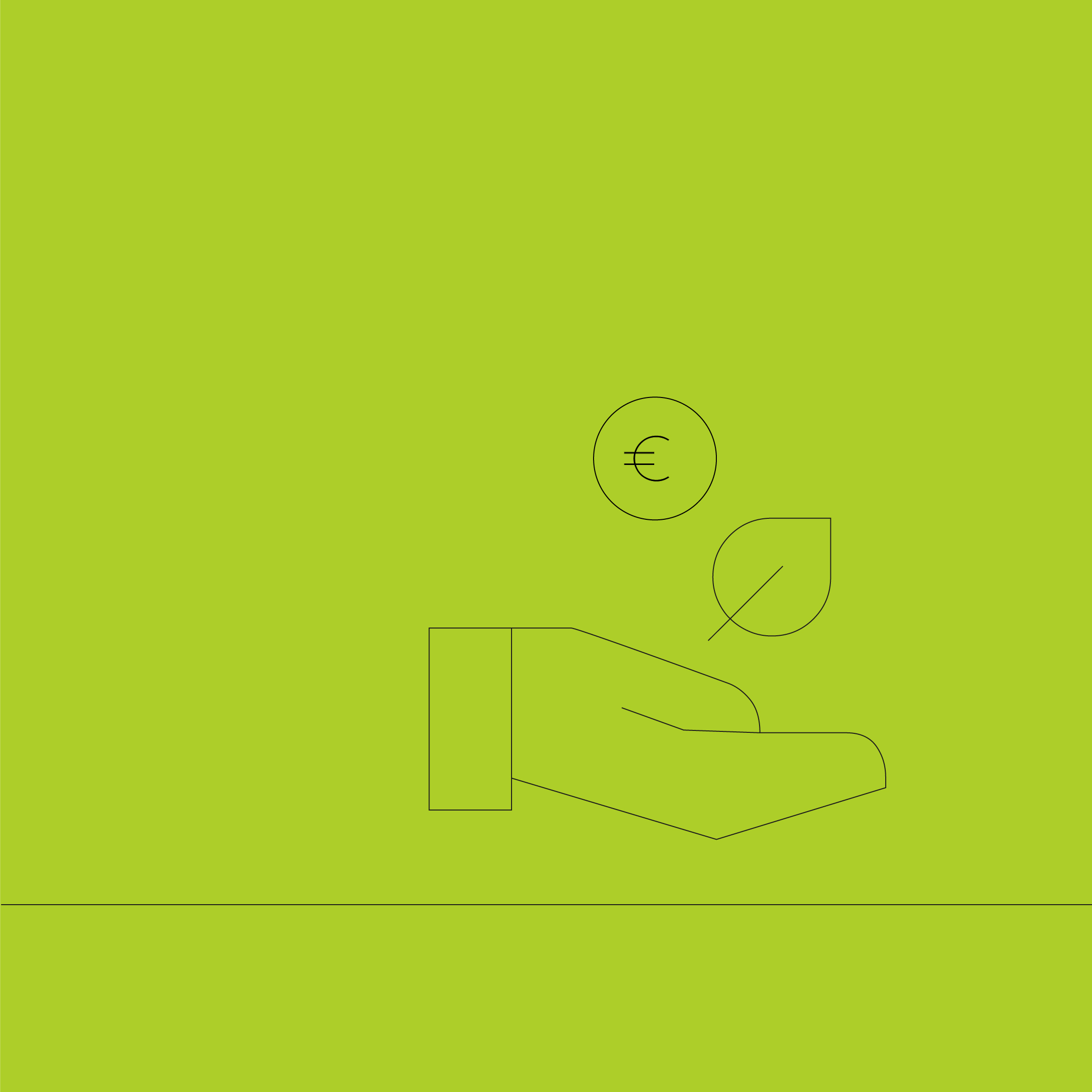Focus on heat pumps
What you should know

Heat pumps are increasingly establishing themselves as an environmentally friendly heating solution that utilises natural energy sources while efficiently reducing heating costs. Their functionality, advantages and wide range of uses make them a pioneering technology for sustainable and comfortable living. It's worth taking a closer look to understand the technology and find the right heat pump for your home.
At a glance
- Function: Heat from environmental energy is converted into heating energy.
- Advantages of heat pumps: Environmentally friendly, cost-efficient and future-proof
- Types of heat pumps: air-to-water heat pump (flexible and easy to install), water-to-water heat pump (high efficiency, well construction required) and brine / water heat pumps (high efficiency, space-intensive).
- Finding the right heat pump: Requirements for installation and suitable heat pump types for different installation conditions
- Costs & subsidies: Higher purchase costs are made attractive by subsidies; electricity costs for operation depend on efficiency, insulation and heating requirements.
- Maintenance: Heat pumps are low-maintenance, do not require a chimney sweep and can often be serviced remotely.
Function of a heat pump - briefly explained

The way a heat pump works is based on extracting heat for heating and hot water from environmental energy - such as air, earth or water. To do this, the heat pump extracts heat from the environment and utilises it for the heating system. Only a small amount of electrical energy is required for this.
Advantages of a heat pump
The efficient, resource-saving technology of heat pumps is winning over more and more people - and for good reasons. The advantages of a heat pump cover both ecological and economic aspects:
- Environmentally friendly & future-proof: heat pumps use renewable energy and thus make a significant contribution to reducing CO₂ emissions. They also make you independent of fluctuating oil and gas prices.
- Cost-efficient: As there are no costs for fossil fuels, heating costs are noticeably reduced - a real plus for your wallet.
- Versatile: Heat pumps are suitable for use in new buildings as well as for modernising existing heating systems.
- Eligible for subsidies: Subsidy programmes provide financial support for the purchase and installation and make investing in the many benefits of a heat pump even more attractive.
- Comfortable: Heat pumps not only provide pleasant warmth in winter, but can also cool in summer.
- Low maintenance: Heat pumps are durable and require little maintenance, which keeps the effort and follow-up costs low.
- Quiet in operation: Modern heat pumps operate very quietly and do not disturb living comfort.
What types of heat pumps are there?
Heat pumps are available in various versions, which differ primarily in terms of the heat source used. Different systems are used depending on the location, building type and individual requirements:
What requirements must my house fulfil for a heat pump?
Regardless of whether it's a new build or modernisation, and regardless of the type of heat pump - to ensure that a heat pump heating system works optimally, you should consider the following:
- Good thermal insulation: KfW Efficiency House standards with insulated exterior walls, an insulated roof and triple-glazed windows are ideal. For older buildings, energy refurbishment is recommended before installing a heat pump in order to minimise heat losses.
- Low flow temperatures: The heating system should also provide the desired thermal comfort at low temperatures. Underfloor heating and special heat pump radiators are particularly suitable for this. In old buildings, it may be necessary to replace old radiators with such heat pump radiators.
Which heat pump is right for my house?
The choice of the right heat pump depends largely on the conditions on site, the space available and the necessary authorisations. Depending on the installation conditions, different types of heat pumps can be considered.
Heat pump in apartment block
How does cascading work?
Apartment blocks have a larger living space and therefore a higher heat demand. To cover this efficiently, several heat pumps can be connected together to form a heating system - known as cascading. Individual heat pumps can be flexibly switched on or off depending on the current heat demand in the building. This means that all appliances are in operation at peak load, while only the required number run when demand is lower.

Choose the right heat pump: Heating capacity
Heat pumps are available in various output sizes. The heating capacity of the respective appliance is specified in kilowatts (kW). How much heating capacity a house actually needs or how large the heating requirement is depends primarily on
- the size of the building, i.e. the area to be heated,
- the thermal insulation and thus the question of how great the heat loss to the outside is
- the type and efficiency of heat transfer to the rooms.
Expert advice from an experienced tradesman or energy consultant is recommended in order to determine the appropriate heating capacity and optimise the design of the heat pump.
Tip: Combination with storage solution
To make optimum use of the environmentally friendly heat generated by your heat pump, it should be stored efficiently and brought into the rooms. It is therefore best to combine the heat pump with a suitable hot water storage tank or buffer storage tank. This way, the heat is available exactly when you need it. Underfloor heating or special heat pump radiators also ensure an even and pleasant heat distribution - for a cosy feeling in your home.
By the way: If all components and the control technology are precisely coordinated, you can also save energy and significantly increase comfort. This allows you to get the most out of your heat pump.
Costs associated with the heat pump

The cost of a heat pump varies depending on the type and size of the system. As a rule, the purchase and installation costs are approximately between 20,000 and 40,000 euros, which is slightly higher than for conventional heating systems such as gas or oil heating. However, you benefit from lower operating costs and lower maintenance costs in the long term.
The electricity consumption of the heat pump is an important factor in the height of the operating costs. This in turn depends on the efficiency of the heat pump, which is described by the COP value, among other things: The higher the value, the more efficiently the system works and the less electricity it requires for heat generation. The area to be heated, the heat demand, the insulation of the building and the outside temperatures also have an effect on the heat pump's electricity consumption.
Additional tip: By combining it with a photovoltaic system, you can use your own electricity for the heat pump and thus further reduce electricity costs.
Financing a heat pump
Utilise subsidies
Subsidies for heat pumps, such as grants, low-interest loans or tax benefits, can significantly reduce investment costs. It should be noted that certain efficiency requirements or minimum technical standards usually have to be met. In addition, the funding opportunities also vary from region to region and can change. It is therefore worth obtaining up-to-date information prior to installation.
The attractive subsidy options and conditions within the framework of the BEG (Federal Subsidy for Efficient Buildings) can be found at KfW.
Important: Apply for funding before starting the installation so as not to jeopardise eligibility for funding!
Heat pump maintenance
Little effort - great benefit

- Heat pumps work without combustion. This means that the chimney sweep does not have to visit regularly to check and inspect them, as is mandatory for oil and gas appliances.
- Heat pumps are generally low-maintenance. They often also offer the option of remote maintenance, so you don't have to make a time-consuming on-site appointment with your specialist partner and any problems can often be efficiently rectified remotely.
- Another advantage: heat pumps do not show any gradual loss of performance. The performance of the heat pump remains the same even years later.
FAQ
Buy a KERMI heat pump
We attach great importance to the highest quality and flawless installation of our products. That is why we sell KERMI heat pumps exclusively via the three-stage sales channel. This ensures that you not only receive a premium product, but also benefit from the best possible advice, planning and professional installation. Your qualified local specialist partner is your direct contact and ensures the optimal integration of our efficient and sustainable heating solutions into your home.